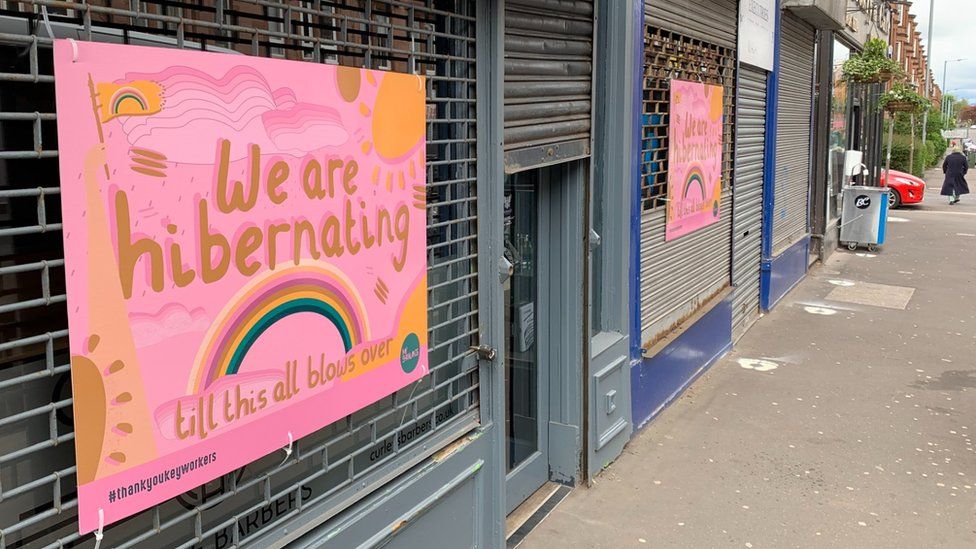Coronavirus lockdown 'avoided thousands of deaths' in Scotland
- Published

A study has suggested between 7,000 and 40,000 people could have died from coronavirus in Scotland if the country had not gone into lockdown.
Scientists have tried to estimate would have happened if Scotland had copied the approach taken in Sweden, where a lockdown was not imposed.
Rowland Kao, a professor of epidemiology and data science at Edinburgh University, led the team which carried out the research for BBC Scotland.
He said: "An obvious question to ask is if Scotland had done something similar to Sweden, would we have had a similar outcome without all the restrictions."
Although there was no lockdown, Sweden relied on voluntary social distancing, banning gatherings of more than 50 people and halting visits to elderly care homes.
"We took the relative amount of transmission going on in Sweden, translated that over to Scotland and looked at what the resultant number of deaths would have been had we taken that approach."
What was Sweden's approach to coronavirus?
There was no compulsory lockdown in Sweden, unlike the measures seen elsewhere in Europe. But in line with government advice, most people took to voluntary social distancing and working from home.
- Restaurants, bars, schools and businesses remained open. But it did ban gatherings of more than 50 people
- Sweden has recorded more than 5,200 deaths, the highest per capita number in the Nordic region
- When Denmark and Norway agreed to reopen their borders to each other, from 15 June, Sweden was left out because of its high rate of infection
Read more:
Prof Kao said the team's modelling pointed to two potential outcomes.
"With no lockdown and some restrictions, Scotland could have experienced a slightly larger outbreak, possibly with 7,280 deaths, or a far larger outbreak which could have killed nearly 39,613."
Scotland would have avoided the collateral damage caused by lockdown, "but many more people would have died".
Prof Kao said Scotland would have had an R number of about one if it had adopted the Swedish approach. The R number is the number of individuals who, on average, will be infected by a single infected person.
"You have two very different possible outcomes and they hinge on this idea that it depends on the R number being above one or below one," said Prof Kao.
"If the R number remains above one, you could have had 40,000 deaths, and if it's below one, 7,000.
"It's fair to say that the chance of there being substantially more deaths is very high. There's a 50:50 chance we would have had a much worse epidemic. Is 50:50 worth gambling on? I would suspect not."
Politicians, scientists and medics will try to learn lessons from the last 100 days in case there is a second wave of infections.
Prof Kao said: "The great advantage is we should be better prepared if there is a second wave. It should become possible to have a much more regional approach.
"We know a lot more about the disease and we have more testing capacity. It should be possible to have a much more regional approach rather than have a nationwide lockdown."
In May, Prof Kao and his colleagues said that more than 2,000 coronavirus deaths could have been prevented if Scotland had locked down two weeks earlier.
The findings featured in a BBC Disclosure investigation and suggested the death rate in Scotland could have been reduced by about 80% with earlier action.
- Published31 January
- Published30 June 2020